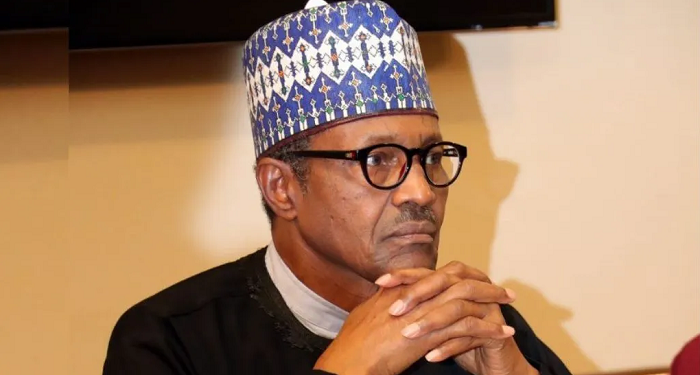Nigeria needs to get rid of these subsidies
The report coming from the World Bank provides insight into all the subsidies in Nigeria. According to reports, Nigeria’s subsidy budget has exceeded the spending on health, education, and some other sectors. In the revised budget of 2022, fuel subsidy is expected to hit N4 trillion, which represents about 25% of the budget. The figures could be more based on projections and soaring oil prices.
A subsidy is a form of financial aid or tax relief and other forms of economic support provided by the government of a country or state, to some sectors, and the economy. The reasons for subsidies by governments are to make things affordable for their citizens and also to help boost a particular industry or sector.
Subsidies also help to increase revenue and lower the cost of production. Subsidy cuts across different sectors or things such as food, education, Oil & Gas, export/import, housing, and healthcare, amongst others.
The efficiency of subsidy has been subjected to debate over time. Economists, financial analysts, and experts have argued that subsidy in most cases is a short-term fix, and not sustainable in the long run. Nigeria’s subsidy currently cuts across different sectors, and the question is can Nigeria sustain it simultaneously in the face of an economic downturn?
Fuel Subsidy
Fuel subsidy tops the list of subsidies in Nigeria. The issue of fuel subsidy dates back to the 70s, when the military regime of General Olusegun Obasanjo, introduced it as a means of making fuel affordable to the average Nigerian after a global increase in energy prices. Ever since fuel subsidy has continued to be at the forefront of economic debates in Nigeria. The high point of the fuel subsidy debate was in 2012 when the government of Goodluck Jonathan announced the removal of fuel subsidy. This move degenerated into a nationwide protest known as “Occupy Nigeria” before a reversal was made.
The economic implications of fuel subsidies are enormous. Fuel Subsidy payments have continued to grow astronomically, increasing by 349.2% in 3 years according to reports. This figure also represents about 2% of the country’s GDP. Initially, President Buhari approved N3.557 trillion for subsidy payment in the 2022 budget, the figures shot up to N4 trillion in the revised budget, representing about 25%.
The International Monetary Fund (IMF) has warned that the statistics could skyrocket to N6 trillion due to soaring oil prices across the world, with a barrel of oil sold at over $100, following Russia’s invasion of Ukraine. With Nigeria’s heavy importation of refined petroleum, moribund refineries, oil theft, and drop in oil production, the figures quoted might go higher. In the latest financial report of the country, the Federal Government announced that debt servicing surpassed revenue generation in Q1 of 2022. Nigeria generated N1.63 trillion, while debt service was N1.94 trillion.
Education
The Nigerian educational system has suffered a major setback once again with the lingering strike from the Academic Staff Union of University (ASUU). The association is currently on a strike action it has embarked on since February 14, 2022. Strike actions have always been a major impediment to tertiary education in Nigeria.
According to reports, Nigeria has the highest number of out-of-school children in the world with 10.5 million children. The figure means that 1 out of 5 out-of-school children in the world is in Nigeria. The problem stems from primary education, up to tertiary education in the country. The primary source of funding in a government-owned institution in Nigeria is tuition, subventions, and grants. However, after payments of staff salaries what is left is usually not enough to run the university.
The average tuition in Federal universities is N20,000-N30,000 while in state-owned universities it’s within N50,000-N100,000. In comparison with private universities where tuition ranges from N300,000-N1,000,000. The figures showed that the Federal and State Governments pay subsidies for Education in the country, but it is usually not enough due to the universities in the country, and also considering other levels of tertiary education such as Polytechnics, Colleges of Education, Colleges of technology, amongst others. It has been 7 months since ASUU went on strike, how does Nigeria fix this impasse?
Health
The 2022 budget for health is N724 billion, which represents 4.2% of the N17.16 trillion budgeted for 2022. The allocation of the sum was met with mixed reactions, considering the state of health facilities in the country, and frequent tourism by politicians outside the country. Nigeria is currently faced with myriads of health issues (and not limited to the country) such as Covid-19, Malaria, and Lassa Fever, amongst others.
The Nigerian healthcare system includes Specialist Hospitals, General Hospitals, Teaching Hospitals, and Primary Healthcare Centres, among others. In order to subsidize healthcare in Nigeria, the National Health Insurance Scheme (NHIS), was launched in 1995 but became operational in 2005. Funding for the NHIS has been the sole responsibility of the Federal Government. The healthcare system also suffers from issues such as nonpayment of salaries/stipends of health workers, lack of medical equipment, lack of facilities, and others.
Power
One thing that might shock Nigerians is that the Federal Government pays or used to pay subsidies on power in the country. The power sector which started as the Electric Company of Nigeria (ECN), me the National Electric Power Authority (NEPA), metamorphosed into the Power Holding Company of Nigeria (PHCN) in 2005, before it was unbundled and privatized in 2013.
Despite privatization, the sector has witnessed little or no significant improvement ever since. The Federal Government announced it spent N1 trillion on fuel between 2019-2021 to help lower the tariff. In March 2022, the Nigerian Electricity Regulatory Commission (NERC) announced the removal of subsidies by the Federal Government.
The country needs to make tough decisions and that begins with letting go of some subsidies.








